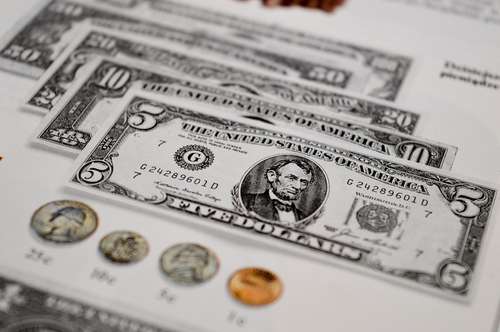U.S. House Bill Would Allow Federal Taxes in BTC While Aiding U.S. Reserve
This new proposal is stirring up quite the conversation in Washington and among cryptocurrency enthusiasts nationwide. Imagine being able to pay your federal taxes with Bitcoin—no capital gains headache, and a boost to the U.S. Reserve at the same time. The idea might sound futuristic, but with the introduction of the Bitcoin for America Act by Rep. Warren Davidson, it’s rapidly gaining momentum. It's a topic that goes beyond simple finance; it hints at a rethinking of our entire approach to digital currency taxation and U.S. economic policy.
In today’s fast-paced world, where blockchain technology is transforming how we transact and store value, any significant policy shift like this immediately raises eyebrows and sparks heated debates. But why is this important? At its core, the proposal seeks to integrate cryptocurrency legislation with tax reforms, providing a legal framework that could reshape our financial policy landscape while simultaneously bolstering the nation’s digital asset strategy.
Bill Overview and Its Implications
The Bitcoin for America Act proposes an intriguing change: allowing tax payments to be made directly in BTC. This is a groundbreaking move in terms of digital asset regulation and federal tax reform. By accepting Bitcoin for federal tax payments, the U.S. government is essentially acknowledging the growing role of digital currencies. This resonates with those who believe that current U.S. cryptocurrency policy has been slow to catch up with rapid developments in the tech realm.
The bill is not just about convenience—it’s also a radical rethinking of tax and reserve management. Offering a tax payment option in Bitcoin would potentially save taxpayers from the typical capital gains liabilities associated with converting cryptocurrencies. The delicate nature of digital currency taxation is well-known among enthusiasts, and this proposal is aimed at reducing one of its biggest pitfalls.
Rep. Warren Davidson clearly sees the bill as a way to bring the federal system into a more modern era. One of the key benefits discussed among supporters is the possibility of streamlining financial procedures, which could spur further cryptocurrency adoption across various sectors in the U.S. It's an exciting prospect for anyone who’s ever wondered if there was a way for the government to bridge traditional economic policy with innovative technology.
Moreover, this move could redefine the U.S. Reserve’s strategy in managing digital assets. By directing tax payments in BTC into a Strategic Bitcoin Reserve, the Federal Reserve could begin an era of significant diversification. This concept of a dedicated reserve marks a hybrid approach combining fiscal responsibility with modern technology.
The U.S. Strategic Bitcoin Reserve
Let’s dive deeper into what the U.S. Strategic Bitcoin Reserve means for the nation’s economic stability and digital asset regulation. At its heart, the idea is to store Bitcoin as part of the country’s financial strategy. This means the U.S. Reserve could serve not only as a traditional safeguard but also as a buffer against volatility in cryptocurrency markets.
Imagine having a lightning-fast, digital piggy bank that doesn’t just sit idle but actively contributes to a national strategy. That’s the idea behind the reserve—it offers a contemporary twist on how governments could potentially manage assets in an increasingly digital world. For those who have been following cryptocurrency legislation, this is a mix of old school financial prudence and new age tech advancements.
The bill’s supporters argue that establishing a U.S. Reserve for Bitcoin could attract more investors and foster confidence in the nation’s economic policy. By integrating a digital asset into the federal reserve, this initiative could signal a notable shift in how the government views digital currencies. Who could have imagined, just a few years ago, that federally accepted Bitcoin might become a reality?
Critics, on the other hand, caution that such a move might come with its own set of challenges. They worry that it might open new avenues in regulatory scrutiny and even lead to increased market volatility in cryptocurrency spaces. Yet, proponents believe that with strong blockchain technology frameworks already in place, these potential issues can be managed effectively.
Impact on Federal Taxes and Economic Policy
This bill could be one of the stepping stones towards comprehensive federal tax reform. Paying taxes in BTC offers not just a convenience for crypto users but also a far-reaching impact on U.S. economic policy. By mainstreaming digital currency taxation, the U.S. House Bill is setting the stage for a more inclusive financial framework.
The concept of tax payment in Bitcoin is especially intriguing because it can speed up the transformation of the traditional tax system. Think about it—like upgrading an old car to a modern electric vehicle. The mechanics change, the efficiency improves, and the overall experience evolves. In this case, the efficiency in tax collection and the reduction in capital gains liability could make a notable difference for taxpayers who have invested in cryptocurrencies.
Moreover, it might encourage more citizens to see digital currencies as a viable part of everyday transactions. With digital asset regulation now becoming more mainstream in government policy, there’s potential for a cultural shift in how we view money and fiscal responsibility. By removing some of the tax burdens associated with cryptocurrency trading, the proposal paves the way for a more dynamic, tech-forward approach to federal financial management.
It's like turning a page in a much-needed chapter of U.S. financial policy reform. The fact that decision-makers are willing to engage with cutting-edge solutions indicates robust progress in how the U.S. embraces change in policy and technology.
What This Means for Cryptocurrency Adoption
This proposal is not occurring in a vacuum—its potential ripple effects on cryptocurrency adoption are immense. With federal tax payments potentially being made in Bitcoin, a real-world use case for BTC in governmental financial operations provides an endorsement of sorts for the digital currency community.
For everyday users and investors, this means an even stronger validation of Bitcoin’s utility. When you see the federal government considering Bitcoin for tax payments and reserve management, it sends a clear message: digital currency is here to stay and evolve within conventional economic systems.
This could be particularly impactful for small business owners and individual investors who have long felt that cryptocurrency was sidelined by outdated U.S. financial policy. Now, with these opportunities, there’s a renewed sense that blockchain technology isn't just a speculative bubble, but a transformative tool that will shape tomorrow’s economy.
At the same time, this move could force other nations to reconsider their stance on digital asset regulation and cryptocurrency legislation. It’s a classic case of setting a precedent—one that could redefine global attitudes toward Bitcoin federal taxes and broader cryptocurrency adoption.
Looking Forward
The introduction of the Bitcoin for America Act is an ambitious endeavor that holds significant promise for reshaping U.S. financial policy and digital asset regulation. The possibility of paying federal taxes in BTC while building a U.S. Strategic Bitcoin Reserve might very well showcase the future of how governments manage and interact with digital currencies.
While there are still many hurdles to cross—from ensuring security to managing market volatility—the overall sentiment is one of cautious optimism. For those who have followed cryptocurrency trends over the years, this bill feels like a natural evolution. It’s a reminder that innovation often stems from the intersections between technology and policy.
In wrapping up our discussion, the potential changes brought by this U.S. House Bill offer a refreshing take on what federal tax reform might look like in the digital age. With the right balance of regulatory prudence and technological enthusiasm, the future of digital currency taxation in the U.S. looks both exciting and promising!




